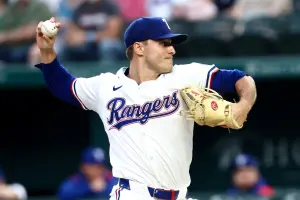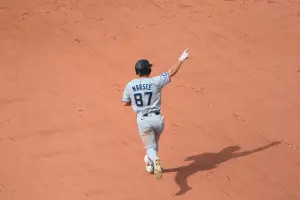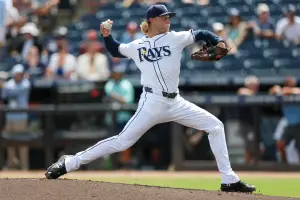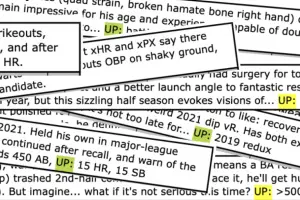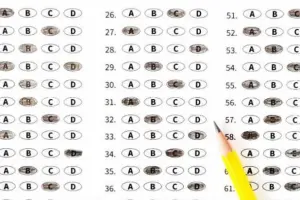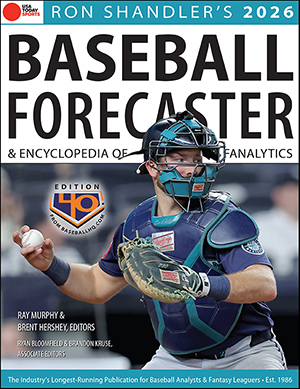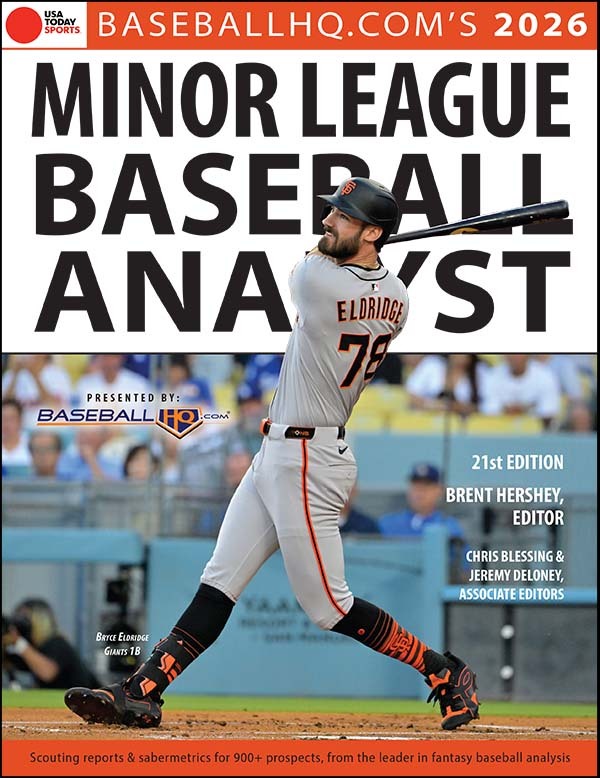
(*) MASTER NOTES: Lessons from Billy Beane
There are a lot of motivations for playing fantasy baseball. Chief among them, of course, is the chance to prove your superior knowledge and understanding of the game: after all, who doesn't enjoy beating their friends at something?
That competitive streak can extend beyond just your friends. If you're like me, you wonder how your skills in managing your fantasy team might translate to the real game, the one on the field we're all just simulating. After all, probably more than half of the people reading this piece would do a better job of running the Phillies than Ruben Amaro is doing these days. At least, none of us would have given Ryan Howard that ridiculous contract extension, right?
When you see MLB GMs make bad moves, it's easy to think "I can do better." On the flip side, though, we should give credit where it's due. Oakland GM Billy Beane just spent the month of July running an absolute clinic on how to do his job well, and there is a lot we can all learn from his actions over the past few weeks.
Here are eight lessons from Billy Beane that we can apply to our own leagues:
1. You can't go all-in every year, but eventually you have to do it. Beane has built a number of contenders in his tenure as GM, and has never been shy about looking to improve his team at the trade deadline. But this year has been different: Beane has been ruthlessly aggressive about chasing playoff success. As he has learned throughout a career's worth of playoff disappointment, nobody is going to give you a championship. You have to go out and take it.
2. Be the first mover in the marketplace. The genius in Beane's deal with the Cubs was that he moved first in an as-yet-undefined market. There were going to be a number of starting pitchers up for bid this July, but Beane didn't wait for someone else to make a move that would level-set the market. He was willing to set the market himself. Acting early gave him more targets to bid on, and when he got a deal done early, he got a couple of weeks' worth of extra starts from his acquisitions, compared to a deadline deal.
3. Know the mindset and needs of your trade partner. The Cubs probably weren't interested in Yoenis Céspedes, just as the Red Sox may not have accepted a prospect-heavy offer for Jon Lester. Whether or not Beane was the first one to float the appropriate names in either discussion, it's clear that he stayed flexible and was willing to adapt the discussion to meet the needs of what his trading partner wanted to acquire, rather than what he preferred to offer.
4. Be willing to move whatever is required to get what you need. Coming into the season, Beane probably didn't think it likely that he would deal Addison Russell. As recently as last week, it may not have seemed even plausible to trade a key contributor like Cespedes. But Beane clearly determined that he needed pitching and was willing to pay to acquire it. It would have been easy to end the Red Sox discussion by saying "giving up Cespedes for Lester just fills one hole by creating another." Instead, Beane believed that he needed the pitching more than he needed Russell and Cespedes, so he adapted.
5. Don't act in one shot: make a move, re-assess, and make another move. The additional benefit of acting early with the Chicago trade was that it left Beane with time to re-assess his needs and the marketplace before the deadline. As it turned out, Jason Hammel was terrible upon arrival in Oakland, and the A's track record of mixing-and-matching otherwise-nondescript lineup pieces (most recently, Stephen Vogt) has to give some confidence that the A's can backfill Cespedes. So, rather than saying "OK, I've addressed my rotation, let's turn somewhere else," Beane doubled-down on starting pitching with the Boston deal.
6. Pay attention to the small needs as well as the larger ones. With the two major deals complete, Beane still needed to backfill that LF hole that Cespedes had left. He needed a piece to complement Jonny Gomes, and turned to a known commodity in Sam Fuld, who was on his team earlier this year. Fuld provides the speed and defense that Gomes doesn't, and hits from the opposite side of the plate. Together, they replace most of Cespedes' core skills, just in two bodies instead of one.
7. Don't be afraid to overpay. A lot of us would probably have found it distasteful, if not downright galling, to have to surrender a legitimate young player in Tom Milone just to re-acquire Fuld, who you had released earlier in the season. Beane didn't care: Fuld was the right fit for the need he was trying to fill, and Milone meant nothing to the effort to win now. Once you decide you are all-in, that's the only time horizon that matters.
8. Trust your process. Beane knows these deals don't guarantee any success this October. But he also has enough security to know that he isn't going to be fired if this push doesn't bring home a championship. Beane clearly has enough confidence in his process, in his abilities and his staff's abilities, to know that win or lose in 2014, these deals won't cause the franchise to crash and burn in 2015 and beyond. Losing Russell and Cespedes will eventually hurt, but Beane and his team will continue to do their jobs, finding ways to minimize those losses.
Beane's work hasn't guaranteed anything, but he has advanced his team from a contender to a favorite. That's an excellent goal we can take into our own trade negotiations: you can't guarantee anything either, but if you make yourself the favorite, then you, like Billy Beane, will have done some very good work.


